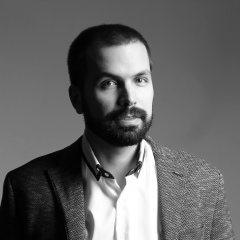У меня есть для вас отличная история почему невероятно важна наука и обоснованное мышление в обычной жизни каждого из нас.
Мы все слышали про холестерин. И что он среди прочего является причиной проблем с сердцем. Может быть кто-то даже понимает механизм, что холестерин скапливается на стенках сосудов, снижая их пропускную способность тем самым повышая риск создания тромба, перекрывающего доступ крови к тому или иному участку тела. И мы даже слышали, что поэтому надо питаться правильно и не есть продукты, в которых много холестерина, в первую очередь — жирные продукты.
Правильно?
Оказывается, не совсем.
Оказывается, холестерин — один из ключевых элементов физиологического обмена в нашем организме. Оказывается, холестерин нами не только и не столько потребляется в еде, сколько в первую очередь производится самим организмом (печенью, если быть точнее). Оказывается, проблема не в том, что холестерина в крови много и он постоянно вырабатывается организмом в излишних количествах, а в том, что у некоторых клетки организма не потребляют этот холестерин из крови, поэтому он там и остается неиспользованным.
Оказывается, существует генетическая мутация аллели, которая есть в среднем у 1 из 500 человек, при которой клетки хуже вырабатывают протеин, который ответственен как раз за поглощение холестерина из крови и использование его в метаболизме клетки. Оказывается, в случае, когда у человека оказываются две таких аллели (что происходит в среднем 1 раз на 1 000 000), у него в принципе клетки организма практически не потребляют холестерин, вырабатываемый в организме, что ведет к очень быстрой закупорке сосудов и самый ранний случай инфаркта — 18 месяцев от роду.
(Кстати, оказывается, что протеин это не только штука, которая содержится в еде и которую можно жрать в специальных порошках, коктейлях и батончиках, которая дает вам массу, а это вообще-то белки, которые выполняют практически все функции в рамках любой клетки организма).
Дак вот, в итоге, оказывается, что не есть продукты с высоким содержанием холестерина практически не сказывается на состоянии здоровья сердечно-сосудистой системы (это не значит, что можно есть что угодно, там есть много разных факторов других, но основная суть в том, что вполне «очевидное» многим из нас утверждение, которое активно поддерживается в СМИ, в т.ч. в рекламе, и в бытовых разговорах — в корне неверно, при этом оно повсюду, оно важно и любой мало-мальски грамотный врач вам бы об этом рассказал. Но увы, большинство из нас — невежды в этом вопросе).
Самое забавное, что даже я это узнал абсолютно случайно и вопрос специально не изучал.
Я узнал это, проходя великолепный курс от MIT 7.00x Introduction to Biology – The Secret of Life, который хоть уже и подходит к концу, но я уверен, получит в начале следующего года очередной перезапуск, и его действительно стоит пройти.
Мораль сей истории такова, что даже у меня, человека, который ко всему относится критически, с сомнением и необходимостью наличия обоснования, есть в голове какая-то информация, которую я считаю верной и соответственно прямо или косвенно использую при принятии решений, но которая по сути своей в корне ошибочна.
И это лишь один достаточно маленький вопрос. Представьте себе на каких огромных объемах информации мы каждый день основываемся и принимаем решения? А что если даже 10% этой информации — неверны? (Это конечно крайне оптимистично, скорее всего более 80, а то и 90% того, что мы знаем и думаем, что знаем — ошибочно).
Вывод? Стоит еще больше постоянно сомневаться во всем, проверять а откуда я знаю, что то, что я думаю верно — действительно верно? Is there any evidence to support this statement?
Только так можно принимать действительно реалистичные и качественные решения, а значит получать реальные результаты, а значит достигать того, что хочешь. Наивно надеяться, что имея ошибку в логике, и опираясь на эту логику в своем поведении можно получить желаемый результат. Невозмжоно построить компьютер, если у тебя неверная математика, сколько не пытайся. Однако, если ты постоянно проверяешь и обоснованно улучшаешь свою «математику» в жизни — шанс на успех возрастает пропорционально, если не экспоненциально.
p.s. Учитывая огромный объем информации, на котором мы основываем каждый день наши решения (часто совсем этого не осознавая) вполне очевидно, что нельзя разобраться во всем. Как же тогда быть? Я нашел ответ в приоретизации, но это уже отдельная, весьма длинная история, которую я может быть и расскажу, если эта статья продемонстрирует интерес к ней и найдет отклик среди вас ;)
Мы все слышали про холестерин. И что он среди прочего является причиной проблем с сердцем. Может быть кто-то даже понимает механизм, что холестерин скапливается на стенках сосудов, снижая их пропускную способность тем самым повышая риск создания тромба, перекрывающего доступ крови к тому или иному участку тела. И мы даже слышали, что поэтому надо питаться правильно и не есть продукты, в которых много холестерина, в первую очередь — жирные продукты.
Правильно?
Оказывается, не совсем.
Оказывается, холестерин — один из ключевых элементов физиологического обмена в нашем организме. Оказывается, холестерин нами не только и не столько потребляется в еде, сколько в первую очередь производится самим организмом (печенью, если быть точнее). Оказывается, проблема не в том, что холестерина в крови много и он постоянно вырабатывается организмом в излишних количествах, а в том, что у некоторых клетки организма не потребляют этот холестерин из крови, поэтому он там и остается неиспользованным.
Оказывается, существует генетическая мутация аллели, которая есть в среднем у 1 из 500 человек, при которой клетки хуже вырабатывают протеин, который ответственен как раз за поглощение холестерина из крови и использование его в метаболизме клетки. Оказывается, в случае, когда у человека оказываются две таких аллели (что происходит в среднем 1 раз на 1 000 000), у него в принципе клетки организма практически не потребляют холестерин, вырабатываемый в организме, что ведет к очень быстрой закупорке сосудов и самый ранний случай инфаркта — 18 месяцев от роду.
(Кстати, оказывается, что протеин это не только штука, которая содержится в еде и которую можно жрать в специальных порошках, коктейлях и батончиках, которая дает вам массу, а это вообще-то белки, которые выполняют практически все функции в рамках любой клетки организма).
Дак вот, в итоге, оказывается, что не есть продукты с высоким содержанием холестерина практически не сказывается на состоянии здоровья сердечно-сосудистой системы (это не значит, что можно есть что угодно, там есть много разных факторов других, но основная суть в том, что вполне «очевидное» многим из нас утверждение, которое активно поддерживается в СМИ, в т.ч. в рекламе, и в бытовых разговорах — в корне неверно, при этом оно повсюду, оно важно и любой мало-мальски грамотный врач вам бы об этом рассказал. Но увы, большинство из нас — невежды в этом вопросе).
Самое забавное, что даже я это узнал абсолютно случайно и вопрос специально не изучал.
Я узнал это, проходя великолепный курс от MIT 7.00x Introduction to Biology – The Secret of Life, который хоть уже и подходит к концу, но я уверен, получит в начале следующего года очередной перезапуск, и его действительно стоит пройти.
Мораль сей истории такова, что даже у меня, человека, который ко всему относится критически, с сомнением и необходимостью наличия обоснования, есть в голове какая-то информация, которую я считаю верной и соответственно прямо или косвенно использую при принятии решений, но которая по сути своей в корне ошибочна.
И это лишь один достаточно маленький вопрос. Представьте себе на каких огромных объемах информации мы каждый день основываемся и принимаем решения? А что если даже 10% этой информации — неверны? (Это конечно крайне оптимистично, скорее всего более 80, а то и 90% того, что мы знаем и думаем, что знаем — ошибочно).
Вывод? Стоит еще больше постоянно сомневаться во всем, проверять а откуда я знаю, что то, что я думаю верно — действительно верно? Is there any evidence to support this statement?
Только так можно принимать действительно реалистичные и качественные решения, а значит получать реальные результаты, а значит достигать того, что хочешь. Наивно надеяться, что имея ошибку в логике, и опираясь на эту логику в своем поведении можно получить желаемый результат. Невозмжоно построить компьютер, если у тебя неверная математика, сколько не пытайся. Однако, если ты постоянно проверяешь и обоснованно улучшаешь свою «математику» в жизни — шанс на успех возрастает пропорционально, если не экспоненциально.
p.s. Учитывая огромный объем информации, на котором мы основываем каждый день наши решения (часто совсем этого не осознавая) вполне очевидно, что нельзя разобраться во всем. Как же тогда быть? Я нашел ответ в приоретизации, но это уже отдельная, весьма длинная история, которую я может быть и расскажу, если эта статья продемонстрирует интерес к ней и найдет отклик среди вас ;)
I have a great story for you why science and sound thinking in the ordinary life of each of us is incredibly important.
We all heard about cholesterol. And that he, among other things, is the cause of heart problems. Maybe someone even understands the mechanism that cholesterol accumulates on the walls of blood vessels, reducing their throughput, thereby increasing the risk of creating a blood clot that blocks the access of blood to a particular part of the body. And we even heard that therefore it is necessary to eat properly and do not eat foods that contain a lot of cholesterol, primarily fatty foods.
Right?
It turns out, not really.
It turns out that cholesterol is one of the key elements of physiological metabolism in our body. It turns out that cholesterol is not only and not so much consumed by us as food, but primarily produced by the body itself (the liver, to be more precise). It turns out that the problem is not that there is a lot of cholesterol in the blood and it is constantly produced by the body in excessive quantities, but that some cells of the body do not consume this cholesterol from the blood, which is why it remains unused there.
It turns out that there is a genetic mutation of the allele, which is on average in 1 out of 500 people, in which the cells produce worse protein, which is responsible for the absorption of cholesterol from the blood and its use in cell metabolism. It turns out that when a person has two such alleles (which occurs on average 1 time per 1,000,000), in principle, his body cells practically do not consume cholesterol produced in the body, which leads to very fast blockage of blood vessels and the earliest case of a heart attack - 18 months of age.
(By the way, it turns out that protein is not only a thing that is contained in food and that can be eaten in special powders, cocktails and bars, which gives you a lot of weight, and these are actually proteins that perform almost all the functions within any cell of the body )
Duck, in the end, it turns out that not eating foods with high cholesterol practically does not affect the health of the cardiovascular system (this does not mean that you can eat anything, there are many different factors of others, but the main point is that the statement that is “obvious” to many of us, which is actively supported by the media, including in advertising, and in everyday conversations, is fundamentally wrong, while it’s everywhere, it’s important, and any more competent doctor would he told this, but alas, most of us are ignorant in this matter).
The funny thing is that even I found out by accident and did not specifically study the issue.
I learned this through a great course from MIT 7.00x Introduction to Biology - The Secret of Life, which, although it’s already coming to an end, I’m sure it will receive another restart at the beginning of next year, and it really is worth going through.
The moral of this story is that even I, a person who is critical of everything, with doubt and the need for justification, have some information in my head that I consider to be correct and, accordingly, I use directly or indirectly in making decisions, but which fundamentally wrong.
And this is just one small enough question. Imagine what huge amounts of information we are based on and make decisions every day? But what if even 10% of this information is incorrect? (This is of course extremely optimistic, most likely more than 80, or even 90% of what we know and think that we know is wrong).
Output? It is even more necessary to constantly doubt everything, to check how do I know that what I think is true is really true? Is there any evidence to support this statement?
This is the only way to make truly realistic and high-quality decisions, which means getting real results, which means achieving what you want. It is naive to hope that having an error in the logic, and relying on this logic in your behavior, you can get the desired result. It’s not possible to build a computer if you have the wrong math, how many do not try. However, if you constantly test and reasonably improve your “math” in life, the chance of success increases proportionally, if not exponentially.
p.s. Given the enormous amount of information on which we base our decisions every day (often without realizing it at all), it is obvious that you cannot understand everything. How then to be? I found the answer in the prioritization, but this is a separate, very long story, which I may be telling if this article demonstrates interest in it and finds a response among you;)
We all heard about cholesterol. And that he, among other things, is the cause of heart problems. Maybe someone even understands the mechanism that cholesterol accumulates on the walls of blood vessels, reducing their throughput, thereby increasing the risk of creating a blood clot that blocks the access of blood to a particular part of the body. And we even heard that therefore it is necessary to eat properly and do not eat foods that contain a lot of cholesterol, primarily fatty foods.
Right?
It turns out, not really.
It turns out that cholesterol is one of the key elements of physiological metabolism in our body. It turns out that cholesterol is not only and not so much consumed by us as food, but primarily produced by the body itself (the liver, to be more precise). It turns out that the problem is not that there is a lot of cholesterol in the blood and it is constantly produced by the body in excessive quantities, but that some cells of the body do not consume this cholesterol from the blood, which is why it remains unused there.
It turns out that there is a genetic mutation of the allele, which is on average in 1 out of 500 people, in which the cells produce worse protein, which is responsible for the absorption of cholesterol from the blood and its use in cell metabolism. It turns out that when a person has two such alleles (which occurs on average 1 time per 1,000,000), in principle, his body cells practically do not consume cholesterol produced in the body, which leads to very fast blockage of blood vessels and the earliest case of a heart attack - 18 months of age.
(By the way, it turns out that protein is not only a thing that is contained in food and that can be eaten in special powders, cocktails and bars, which gives you a lot of weight, and these are actually proteins that perform almost all the functions within any cell of the body )
Duck, in the end, it turns out that not eating foods with high cholesterol practically does not affect the health of the cardiovascular system (this does not mean that you can eat anything, there are many different factors of others, but the main point is that the statement that is “obvious” to many of us, which is actively supported by the media, including in advertising, and in everyday conversations, is fundamentally wrong, while it’s everywhere, it’s important, and any more competent doctor would he told this, but alas, most of us are ignorant in this matter).
The funny thing is that even I found out by accident and did not specifically study the issue.
I learned this through a great course from MIT 7.00x Introduction to Biology - The Secret of Life, which, although it’s already coming to an end, I’m sure it will receive another restart at the beginning of next year, and it really is worth going through.
The moral of this story is that even I, a person who is critical of everything, with doubt and the need for justification, have some information in my head that I consider to be correct and, accordingly, I use directly or indirectly in making decisions, but which fundamentally wrong.
And this is just one small enough question. Imagine what huge amounts of information we are based on and make decisions every day? But what if even 10% of this information is incorrect? (This is of course extremely optimistic, most likely more than 80, or even 90% of what we know and think that we know is wrong).
Output? It is even more necessary to constantly doubt everything, to check how do I know that what I think is true is really true? Is there any evidence to support this statement?
This is the only way to make truly realistic and high-quality decisions, which means getting real results, which means achieving what you want. It is naive to hope that having an error in the logic, and relying on this logic in your behavior, you can get the desired result. It’s not possible to build a computer if you have the wrong math, how many do not try. However, if you constantly test and reasonably improve your “math” in life, the chance of success increases proportionally, if not exponentially.
p.s. Given the enormous amount of information on which we base our decisions every day (often without realizing it at all), it is obvious that you cannot understand everything. How then to be? I found the answer in the prioritization, but this is a separate, very long story, which I may be telling if this article demonstrates interest in it and finds a response among you;)
У записи 27 лайков,
4 репостов.
4 репостов.
Эту запись оставил(а) на своей стене Антон Муров














































